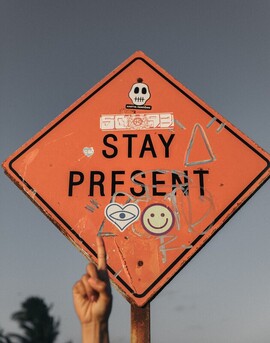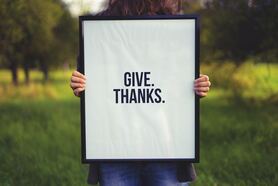|
In Part 1 of this blog, I challenged you to stop and take a broader look at your life and your WDYWFY (What Do You Want For Yourself). I encouraged you to begin that process by taking a look at what matters most to you by identifying your top values. That process is important, not only to identify your top values, but also through realizing what isn’t in the top five. Sometimes we are spending a whole lot of time and energy on things that we later realize aren’t that important. If you’ve not had time to do that yet, here is the link where you can do that: https://www.think2perform.com/our-approach/values Building from your values-based framework, reflect a bit and write goals for this year or this first or next part of your retirement. What do you want to have happen? I know, it’s almost February and that may feel a little like New Year’s stuff. Creating and getting clear about your goals is an important step to make your ideal life your real life! It gives your brain something to organize activity behind. Even if you can only come up with one goal you want to make happen for your life this year, go with it. I’m all for simple. The Acid Test for Your Goals You have likely learned about writing goals using the SMART (Specific, Measurable, Action-Oriented, Realistic/Relevant and Time-based) acronym. I encourage that, and let’s simplify that even further for use here by using an idea that I am borrowing from Doug Lennick, the CEO of think2perform: When you think about turning your wants into goals, Doug advises applying this acid test to each goal:
 Signs Along the Way When I work with people on building what’s next, once their goals are set, I also ask them to put ‘markers’ alongside their goals. What fun things will you notice or encounter that will be evidence of moving in the direction of your goals? This is not a measurement, such as, “When I step on the scale, I will weigh 14 pounds less”. A marker happens out in the world as a result of your intention and effort, but isn’t the end goal. For example, “Someone will compliment me on how much healthier I look.” or “I will be asked to lead a retreat.” I think of pairing markers with goals as push vs. pull. When we set a goal and work toward it, we are using effort and determination to push toward it. Markers are something we envision happening out in the future and simply show up along the way to provide evidence we’re heading in the right direction and are in alignment. They pull us forward. I think it is as important to envision out to the future and watch for those signals showing up as it is to do the work each day to make your goals happen. Questions for You As you arrive at your goals and markers for your year or your retirement, here are some questions to ponder:
Enjoy the gift of this year ahead of you. Taking time to think about what you want for yourself and what matters most to you, how you live in alignment, and what it will look like when you move in that new direction will help help you make meaningful use of this year in your life and in your retirement. That is my hope for you in your 2020.
1 Comment
I’ve been learning more about the health and life benefits of gratitude. We are now entering the holiday season so it seems doubly on topic. I was gifted with a mother who learned to find gratitude in all situations later in her life. I’ve often thought back to that time and how I might incorporate more gratitude into my life. While gratitude is a needed quality for our lives at any stage, it becomes something we can more readily access as we approach and live in retirement. As we age, it turns out that our ability to feel grateful goes up. The amygdala, in our limbic system, becomes less reactive to negative information and increases our ability to react to positive information. Being able to focus in on the positive helps us more readily notice what we are grateful for. And that will bring us all sorts of benefits as we age.  What are the benefits? Here are several of the ways that cultivating gratitude in our lives has been shown in several studies to better our wellbeing:
Pretty impressive, right? Would you like to add more of the benefits of gratitude to your life?  Here are a few easy ways to integrate it into your life:
What a fun and happy way to improve your health, your life and your longevity! What do you have to be grateful for today? Sources:
|
AuthorRuth Tongen helps people plan and live meaningful, fun and healthier retirements. Archives
January 2022
Categories
All
|
|
Ruth Tongen 952-223-1121 [email protected] www.ruthtongen.com Copyright © ruthtongen.com. All Rights Reserved. |
Questions or to
Schedule a Free Consultation Sign up to receive Meanderings:
The New Retirement via email x
Receive a copy of Meanderings: New Ideas for Retirement in your email.
|




 RSS Feed
RSS Feed
